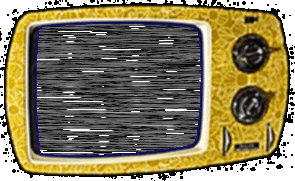
The first rule in politics is that you can never win an argument with the man who buys ink by the barrel, so the wise man knows better than to start one. But paper and ink are not as important as they once were; knowing how to read is so 20th century. Just shut up and listen. Every blowhard with a laptop or a smartphone has everything he needs to get on the Web spread his ignorance far and wide.
The times have cowered everyone else to silence, afraid to speak up for fear of saying the wrong thing. That's why everyone looks around to see who's watching or listening, and says with a wink and a nudge that he's glad Donald Trump is around to say what everybody's thinking.
Newspapers that once thundered are content now to squeak, and leave the thunder to television, which is to news as the bumpersticker is to philosophy. Talking is easy. Thinking is not. On Wednesday night the cast at the Republican told television where to get off.
The questions from the moderators — John Harwood, Becky Quick and Carl Quintanilla — demonstrated how television news has no tradition of the tough city editor who was once a fixture in every newspaper newsroom — skeptical, questioning and sometimes harsh in dealing with inept reporters. "If your mother tells you she loves you," one Chicago editor famously said, "check it out."
Mr. Quantanilla asked Marco Rubio what he made of a Florida newspaper editorial calling on him to resign to campaign full time. "When some say Rubio should resign," he asked, "when they say Floridians sent you to Washington to do a job, when they say you act like you hate your job, do you?"
Mr. Rubio tried to answer, but the moderator cut him off. "But do you hate your job?"
When Chris Christie scoffed that a question about fantasy football was a waste of time for both the candidates and the audience — and was wildly applauded for his scoffing — John Harwood, the lead moderator, interrupted with a bit of television fluff. "Do you want me to answer," the governor asked, "or do you want me to answer? Even in New Jersey, what you're doing is called rude."
All the candidates soon got into the spirit of the evening, having waited for years to say what they think about impolitic and impertinent questions that stray from the subject at hand. Nobody applied blows to the body like Ted Cruz. Carl Quintanilla posed a question about the debt limit with the snark that set the theme of the debate, and the senator ignored the debt limit to give the questioner a piece of his mind.
"The questions that have been asked so far in this debate illustrate why the American people don't trust the media. This is not a cage match. If you look at the questions, 'Donald Trump, are you a comic book villain?' 'Ben Carson, can you do the math?' 'John Kasich, can you insult two people over here?' 'Marco Rubio, why don't you resign?' 'Jeb Bush, why have your numbers fallen?' How about talking about substantive issues?"
The moderator tried another interruption, and was stopped cold.
"But Carl, I'm not finished yet. The contrast with the Democratic debate, where every fawning question from the media was, 'which of you is more handsome and wise?'"
The stunned moderator tried again. "Let me say, you have 30 seconds left to answer should you choose to do so."
Sen. Cruz ignored the petulant rebuke. "Nobody watching at home believes that any of the moderators have any intention of voting in a Republican primary," he replied. "The questions being asked shouldn't be trying to get people to tear into each other, it should be what are your substantive — "
Mr. Quantanilla thought he was getting the last word: "I asked you about the debt limit, and got no answer." Actually, he got a lot of answer, but it wasn't what he expected. Neither was the reaction from other reporters and correspondents. Journalists are like doctors, reluctant to criticize each other's work, and never, never concede that a journalist is biased or holds any but the noblest ways to practice his craft. But this time there were hints of shame in the press room.
Politico said some of the questions veered "beyond sharp into contentiousness." The Washington Post said the questions strayed into "gotcha territory." The New York Times said the CNBC coverage illustrated "why you don't hire tennis players to do color commentary on a football game."
The debate was often chaotic, with the moderators often quarreling among themselves. But it was compelling chaos. CNBC set a record for an audience, with 14 millions viewers, though far below the numbers set earlier by debates on Fox and CNN. Television is first and last a numbers game, and CNBC bought its numbers Wednesday at a fancy price.
Comment by clicking here.
JWR contributor Wesley Pruden is editor emeritus of The Washington Times.



 Contact The Editor
Contact The Editor
 Articles By This Author
Articles By This Author